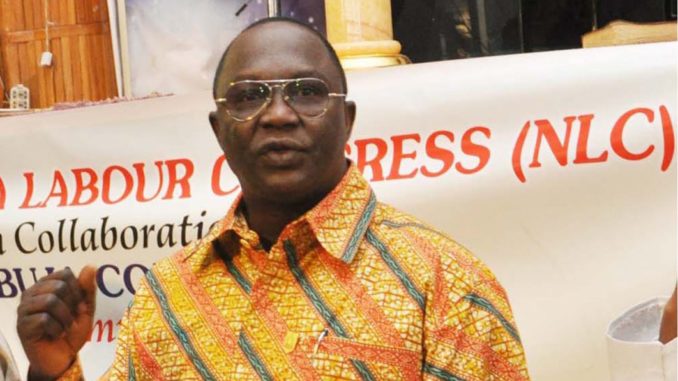
The Nigeria Labour Congress (NLC) has insisted that no wage in the country must go below N66, 000 per month.
Speaking yesterday in Abuja at a public hearing on new minimum wage, Chairman of Congress, FCT Council, Amaechi Lawrence Uchechukwu, described the current N18, 000 minimum wage as a ‘death wage’ under the current economic realities.
He said: “I have a joint memorandum prepared by the NLC and Trade Union Congress which has been submitted to the tripartite committee. Let me ask this: can N18,000 pay your house rent in Abuja or in any part of the country? Can you pay your children school fees with it? Is it a living wage or dead wage? It is indeed a dead wage.”
He argued that the prevailing economic realities in the country dictated labour demand for N66, 500.
He added: “That is why the NLC has decided that our demand is to be paid N66, 500 as new minimum wage, no more no less. Minimum wage of N18, 000 since 2011 cannot take workers anywhere. So, without further delay, Labour is saying that the Federal Government should adopt this position.”
President of NLC, Ayuba Wabba, said setting a national minimum wage is to provide a floor under which no employer can fall.
He argued that minimum wage is not about states paying same figure but that no state can pay below, saying, “minimum wage is not about an equal wage across the states of the federation. The idea of a minimum wage is that while employers can pay higher, they cannot pay lower than the minimum wage and this also applies to the private sector.”
The Deputy National President of the Nigeria Union of Pensioners (NUP), Musa Ayuba said the NUP has proposed a minimum pension of N40, 000 per month alongside the proposed N66, 500 minimum wages for workers.
On his part, the Minister of the Federal Capital Territory (FCT), Mohammed Bello, who was represented by Director, Human Resources of FCT, Amina Abubakar, submitted that indeed N18, 000 which translate to N600.00 daily for workers clearly puts Nigerian workers among the lowest paid in the world.
However, the minister observed that divergent forces often colluded to erode the gains of previous salary increments, saying there is the need for the stakeholders to device means of preserving the gains of such reviews.
His words: “Being mindful of the attendant pitfalls of salary review in the last three decades, the solutions we seek may not be found only in the injection of raw cash into the worker’s pay.
“Committee members may wish to address their minds also to other critical issues that pose threats to workers pay-packages. These include the need for affordable housing, efficient transportation system, affordable medical care as well as subsidising the cost of education.”
END

Be the first to comment